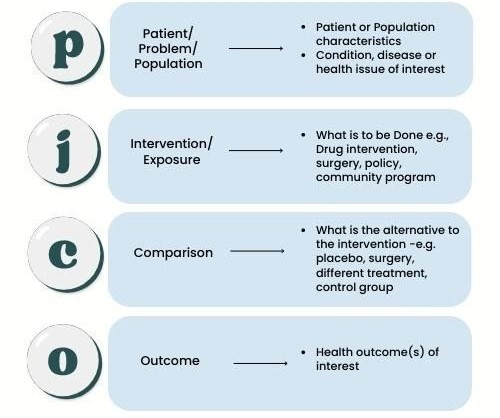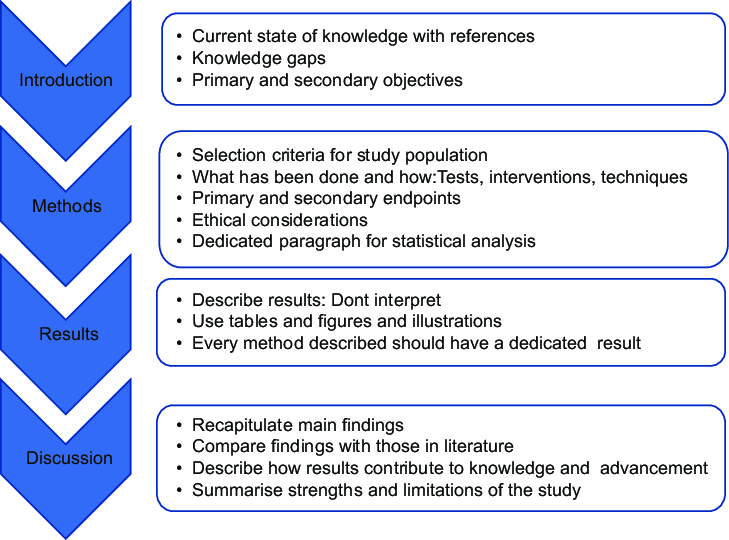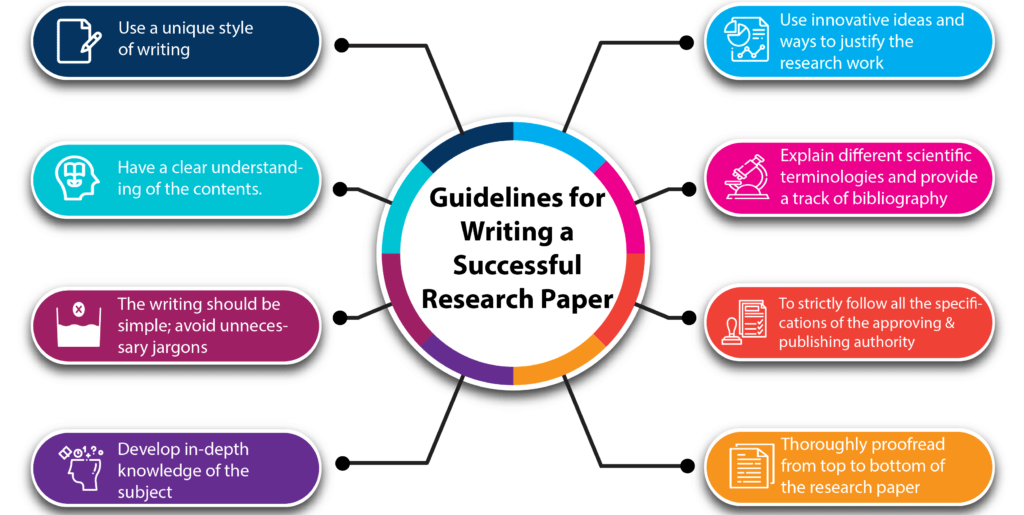
Table of Contents
The field of oncology nursing is constantly evolving, fuelled by ground-breaking research and a commitment to improving the lives of cancer patients. As a nurse, contributing to this advancement through research is a powerful way to make a difference. Writing a stellar oncology nursing research paper requires careful planning, meticulous execution, and a deep understanding of the research process.
This guide will walk you through each step, providing valuable tips and insights to ensure an outstanding oncology nursing research paper.
Steps for Crafting a Compelling Oncology Nursing Research Paper
1. Choosing a Compelling Topic for Your Paper
The first step in any research journey is selecting a topic that resonates with your interests and expertise. Consider your personal experiences, areas of clinical practice, and current research gaps within oncology nursing. This step is crucial, as it sets the stage for the entire research endeavor. Here are some of the elements to consider when choosing oncology nursing topics.
- Current Issues: Focus on emerging issues like survivorship care, psychosocial interventions, symptom management in advanced cancer, or the impact of new treatments.
- Clinical Challenges: Identify challenges you face in your daily practice and explore how research can offer solutions. For example, you might investigate the efficacy of a specific pain management strategy or explore the barriers to accessing palliative care services.
- Literature Review: Conduct a thorough review of existing research to understand the current state of knowledge and identify gaps. This will help you pinpoint areas where your research can contribute valuable insights.
2. Crafting a Clear and Concise Research Question:
A well-defined research question is the compass that guides your entire research project. It should be focused, specific, and relevant to the field of oncology nursing. Avoid broad, ambiguous questions that are difficult to address within a single research paper.
- PICO Framework: The PICO framework (Patient/Population, Intervention, Comparison, Outcome) is a helpful tool for formulating research questions. This framework ensures clarity and structure, helping you define the key elements of your research inquiry.

- Example: Instead of asking “How can we improve quality of life in cancer patients?”, a stronger question could be “Does a mindfulness-based intervention improve fatigue and anxiety in breast cancer patients undergoing chemotherapy compared to standard care?”
3. Developing a Robust Research Design:
Selecting the appropriate research design is paramount to ensuring the validity and reliability of your findings. The design should align with your research question and allow you to collect and analyze data effectively.
- Quantitative Research: This approach uses numerical data to test hypotheses and establish relationships. Consider using surveys, experiments, or observational studies to gather quantifiable information.
- Qualitative Research: This approach explores the subjective experiences and perspectives of individuals. Methods like interviews, focus groups, or case studies can provide rich, detailed insights.
- Mixed Methods Research: Combining quantitative and qualitative approaches can provide a more comprehensive understanding of the research topic.
4. Gathering Data for Your Oncology Nursing Paper:
Collecting accurate and reliable data is the foundation of a strong research paper. Ensure your data collection methods are ethical, appropriate for your research question, and provide the necessary information.
- Ethical Considerations: Obtain informed consent from participants, ensure data confidentiality and privacy, and adhere to ethical guidelines for research involving human subjects.
- Data Collection Methods: Select methods that align with your research design, including surveys, interviews, focus groups, patient records, or existing databases.
- Data Management: Implement a system for organizing, storing, and analyzing your data effectively. This will ensure accuracy and minimize errors throughout the research process.
5. Analyzing Your Data:
Once you’ve gathered your data, it’s time to analyze and interpret it to uncover meaningful insights. The analysis should align with your research question and the chosen research design.
- Quantitative Data Analysis: Employ statistical techniques to identify patterns, trends, and relationships in your numerical data. Software packages like SPSS or R can be helpful tools for this purpose.
- Qualitative Data Analysis: Techniques like thematic analysis or grounded theory can be used to analyze textual data from interviews, focus groups, or case studies. Look for recurring themes, patterns, and emerging narratives.
- Mixed Methods Data Analysis: Integrating quantitative and qualitative data analysis methods can provide a more holistic understanding of your research findings.
6. Writing the Oncology Nursing Research Paper:
The writing process for an oncology nursing research paper requires clear communication, logical organization, and meticulous attention to detail.
- Structure: Follow a standardized format (e.g., IMRAD – Introduction, Methods, Results, and Discussion) to ensure clarity and coherence.

- Writing Style: Employ concise, objective language that avoids jargon and emphasizes clarity. Support your claims with evidence from the literature and your data analysis.
- Citation and References: Cite sources accurately and consistently using a recognized style guide (e.g., APA, Chicago). Maintain a comprehensive reference list.
7. Refining and Revising Your Manuscript:
Once you’ve completed the first draft, it’s time for meticulous revision and refinement.
- Peer Review: Seek feedback from colleagues, mentors, or experts in the field to identify areas for improvement.
- Editing and Proofreading: Thoroughly edit your manuscript for grammar, punctuation, clarity, and overall flow.
- Formatting and Submission: Ensure your manuscript adheres to the specific formatting guidelines of the chosen journal.
8. Submitting Your Oncology Nursing Research Paper:
Choose a reputable journal that aligns with your research focus and target audience.
- Journal Selection: Explore journals that publish oncology nursing research and consider their impact factor, scope, and target readership.
- Manuscript Submission: Follow the journal’s submission guidelines meticulously to ensure your manuscript is reviewed effectively.
9. Disseminating Your Research:
Sharing your research findings is essential to advancing the field of oncology nursing.
- Journal Publication: Once your paper is accepted, it will be published in the chosen journal, reaching a wider audience of nurses, researchers, and healthcare professionals.
- Conference Presentations: Present your findings at relevant conferences, sharing your research with peers and engaging in valuable discussions.
10. Impacting the Field:
By conducting rigorous, high-quality research and disseminating your findings, you can contribute to the ongoing evolution of oncology nursing practice.
- Clinical Practice: Your research can inform new policies, guidelines, and interventions, leading to improved patient care.
- Nursing Education: Your findings can enhance educational programs, preparing future nurses to provide evidence-based care for cancer patients.
- Advocacy and Policy: Research can support advocacy efforts, influencing policy decisions and resource allocation related to cancer care.
Key Considerations for Writing a Stellar Oncology Nursing Research Paper:
- Significance: Focus on research questions that address significant clinical issues in oncology nursing practice.
- Rigor: Employ rigorous research methods to ensure the validity and reliability of your findings.
- Clarity: Communicate your research findings clearly and concisely, using objective language and appropriate terminology.
- Relevance: Ensure your research is relevant to the current state of knowledge and addresses real-world challenges faced by oncology nurses.
- Ethics: Adhere to ethical guidelines for research involving human subjects.
- Collaboration: Collaborate with other researchers and professionals to enhance the scope and impact of your research.
Oncology Nursing Research Paper Topics
Here are examples of compelling oncology nursing research paper topics to consider.
- The impact of personalized symptom management interventions on quality of life in patients with advanced cancer. This oncology nursing research paper could explore the effectiveness of tailored interventions based on individual patient needs and preferences.
- Exploring the experiences of oncology nurses in providing end-of-life care to patients with cancer. This oncology nursing research paper could delve into the challenges, rewards, and emotional impact of providing end-of-life care in this specialized setting.
- The role of telehealth in improving access to cancer care in rural communities. This oncology nursing research paper could investigate how telehealth can bridge the gap in access to specialized care for patients living in rural areas.
- The effectiveness of mindfulness-based interventions in reducing anxiety and improving coping mechanisms in patients undergoing cancer treatment. This topic could explore how mindfulness practices can enhance well-being and reduce distress among cancer patients.
- Evaluating the impact of patient education programs on adherence to cancer treatment regimens. This oncology nursing research paper could investigate the effectiveness of different educational approaches in promoting adherence and improving treatment outcomes.
- The influence of social support networks on the psychological well-being of cancer survivors. This topic could examine how social connections contribute to resilience and positive adaptation following a cancer diagnosis.
- Assessing the effectiveness of symptom management interventions for chemotherapy-induced peripheral neuropathy. This oncology nursing research paper could explore different strategies for managing this debilitating side effect of cancer treatment.
- The impact of caregiver burden on family functioning and quality of life in families with a cancer diagnosis. This topic could investigate how cancer impacts the caregiver and the family unit, examining coping mechanisms and support needs.
- Developing a culturally tailored intervention to improve communication and shared decision-making between oncology nurses and culturally diverse patients. This oncology nursing research paper could explore how to enhance cultural sensitivity and responsiveness in providing culturally competent care.
- Investigating the effectiveness of virtual reality technology in reducing pain and anxiety during cancer treatments. This topic could explore the potential of VR technology to provide distraction and improve the patient experience during potentially distressing procedures.

These are just a few examples, and you can tailor them further based on your specific interests and research goals. Remember to consult relevant literature and conduct a thorough literature review before embarking on your oncology nursing research paper.
Common Pitfalls to Avoid in Oncology Nursing Research Paper Writing
1. Lack of Clarity in Research Question:
A clear and focused research question is crucial for any oncology nursing research paper. Avoid vague or overly broad questions. Instead, ensure your question is specific, measurable, achievable, relevant, and time-bound (SMART). This will guide your research and make your findings more meaningful.
2. Inadequate Literature Review:
A thorough literature review is essential for understanding the current state of knowledge in oncology. It helps identify gaps in the research, provides a foundation for your study, and justifies the need for your research. Make sure your literature review is comprehensive and includes relevant studies, theories, and frameworks related to oncology nursing.
3. Sampling Bias:
When selecting participants for your research, carefully consider potential sources of bias. Ensure your sample is representative of the target population. This is particularly important in oncology nursing, where factors such as age, developmental stage, and specific health conditions can influence the results.
4. Ethical Considerations:
Research involving children requires strict adherence to ethical guidelines. Seek informed consent from parents or guardians, and ensure the well-being and confidentiality of the children involved. Ethical considerations are paramount in oncology nursing research, as children are particularly vulnerable.
5. Lack of Rigorous Methodology:
A well-designed methodology is crucial for obtaining valid and reliable results. Clearly describe your research design, data collection methods, and data analysis techniques. Ensure your research methods are appropriate for the specific topic and population of your oncology nursing research.
6. Weak Data Analysis and Interpretation:
Thorough data analysis and interpretation are essential for drawing meaningful conclusions from your research. Employ appropriate statistical techniques to analyze your data, and interpret the findings in the context of your research question and existing literature.
7. Poor Writing and Presentation:
Your oncology nursing research paper should be written in a clear, concise, and professional manner. Avoid jargon and technical language that might be difficult for readers to understand. Use appropriate formatting and referencing, and ensure the paper flows logically from introduction to conclusion.
8. Lack of Practical Implications:
While oncology nursing research should be academically rigorous, it should also have practical implications for the field. Discuss how your findings can be used to improve oncology nursing practice, education, or research.
9. Ignoring the Unique Needs of Children:
Remember that children are not simply small adults. They have unique developmental needs, physical and emotional vulnerabilities, and specific health concerns. Your oncology nursing research must acknowledge these differences and tailor its focus accordingly.
10. Failure to Share Findings:
After completing your research, make sure to disseminate your findings to the broader oncology nursing community. Publish your research in peer-reviewed journals, present it at conferences, or share it with colleagues and organizations. Sharing your work contributes to the advancement of the field and helps improve the care provided to children.
Avoiding these common mistakes can significantly increase the quality and impact of your oncology nursing research paper. It’s essential to ensure your research is rigorous, ethical, and relevant to the needs of cancer patients and the practice of oncology nursing.

Writing a stellar oncology nursing research paper is a challenging but rewarding endeavor. By following the steps outlined in this guide, you can ensure your research project is well-defined, methodologically sound, and impactful. Your research can contribute to a deeper understanding of cancer care, leading to improvements in clinical practice, patient outcomes, and the overall quality of life for those touched by cancer. Remember, your contributions as a nurse-researcher can have a profound and lasting impact on the lives of countless individuals.
Get Professional Oncology Nursing Research Paper Writing Help
Are you looking for help with oncology nursing research paper writing? Then, engage PhD Nurse Writer for professional nursing research paper help. Our writers can assist you in choosing an engaging oncology nursing topic, research paper writing, proofreading, editing, formatting and plagiarism removal. We offer customized assignment writing assistance for nursing research papers, essays, case studies and dissertations.





